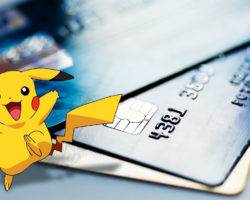Online shopping has become extremely popular. So popular that it’s started to run some old retailers out of business. People nowadays enjoy buying things from the comfort of their own homes, and having their purchases delivered to them. It’s easy, it’s quick, it saves time but it is also making it easier for cyber thieves to steal your credit card data.
In today’s world, almost everyone who uses a credit card to shop online knows what you need to do in order to be safe. If the website address doesn’t start with “https”, then you shouldn’t enter your credit card number. And you definitely shouldn’t save any information online, or let others use your account. But what happens when the party you’re sending the payment to isn’t trustworthy.
New payment systems for safer online shopping
Fortunately, online shopping is becoming safer and safer. And it’s all thanks to new online payment systems that are a lot more secure than credit cards. Apple Pay, Samsung Pay and Android Pay are three such systems. They allow for more secure transactions and they’re available for smartphones as well.
So what makes these new system so secure? The answer will definitely surprise you. Apple Pay, Samsung Pay and Android pay don’t use your real credit card number! This means that the vendor has no access to it.
In order to commit credit card fraud, hackers need to get your credit card number, CCV and expiration date. If you send this information to a vendor, which stores it on a server, they can then hack the server and get your information. However, with these new systems, your credit card information is never shared. The systems use a new technology called payment tokenization. It converts your credit card number into a cryptogram, which useless to hackers.
Is this the future?
Right now, this technology is not available everywhere. Smaller, mom and pop stores probably don’t have it. But there’s no telling what the future will bring. If the new systems gain in popularity, they will likely start showing up on every website and in every store.









